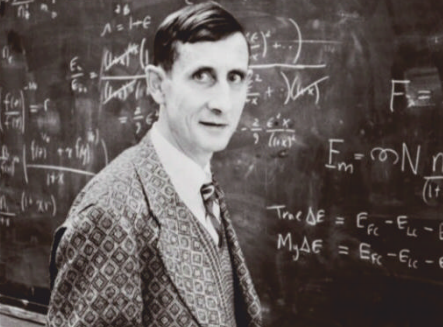Despite a lack of credentials (he never got round to earning his PHD; friends joked that he was the world's most accomplished graduate student), he was plainly clever. By the age of five, growing up in Berkshire, he had tried to calculate how many atoms there were in the sun. His leisure reading as a teenager was Piaggio's "Differential Equations"; and he had solved that quantum electrodynamics puzzle, without pen or paper, while riding in a Greyhound bus.
尽管弗里曼缺乏资格证书(弗里曼从未有时间取得博士学位;朋友们开玩笑说他是世界上最有成就的研究生),但是他显然很聪明。弗里曼在伯克希尔长大,5岁时曾试图计算太阳中有多少原子。他十几岁时的闲暇读物是皮亚乔的《微分方程》;他在乘坐灰狗巴士时,不用纸笔就解开了量子电动力学难题。
His very cleverness, his vivid language and his faith in the potential of science—which marked him as it marked the century—meant that, even when his schemes were wildly bizarre, they were not dismissed. Colleagues respected him too much. And the schemes came thick and fast. He proposed using genetically altered trees to turn comets into places where humans could resume an "arboreal existence"; these trees would grow hundreds of miles high, until the comet would look like a sprouting potato.
弗里曼的聪慧,他生动的语言和他对科学潜力的信心——这是他的标志,也是这个世纪的标志——意味着,即使在他的图式非常怪异的时候,它们也没有被驳回。同事们太尊重他了。而且图式又来得又快又密。他建议用基因改造过的树把彗星变成人类可以恢复“树栖生活”的地方;这些树会长到几百英里高,直到彗星看起来像一个发芽的土豆。

He also popularised a wild thought called the Dyson sphere, a gigantic shell made of pulverised asteroids that might be spread by a very advanced civilisation round its parent star to capture all its energy. (Looking for such structures and their infrared glow elsewhere in the galaxy, he argued, might be a good way to detect super-advanced aliens.) He imagined plants that could grow greenhouses round themselves, and genetically altered microbes that could harvest minerals and clear up plastic litter from space.
弗里曼还推广了一种叫做戴森球的疯狂思想 戴森球是一个由粉碎的小行星组成的巨大外壳,可能由围绕其母星的一种非常先进的文明传播,以获取它所有的能量。(他认为,在银河系的其他地方寻找这样的结构和它们的红外线,可能是探测超级先进外星人的好方法。)弗里曼设想过可以在自己周围形成温室效应的植物,还有转基因微生物,它们可以收集矿物质,清除太空中的塑料垃圾。
译文由可可原创,仅供学习交流使用,未经许可请勿转载。












